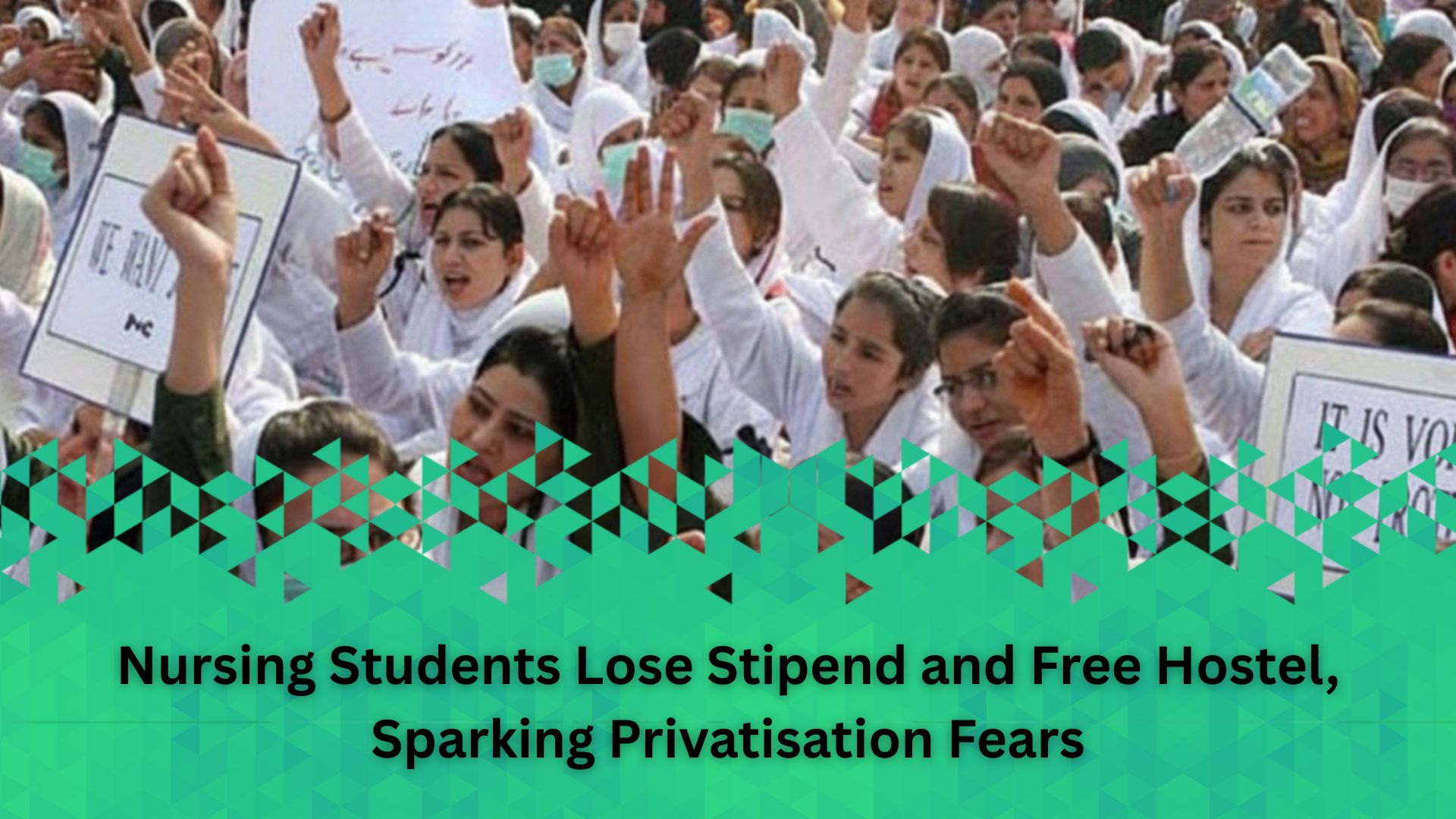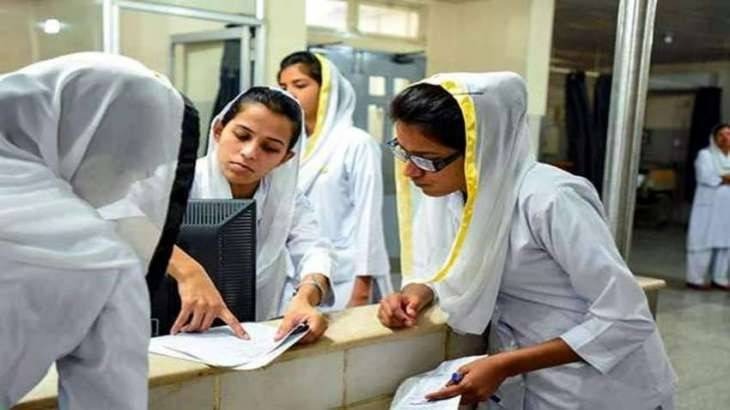
Nursing Students Lose Stipend and Free Hostel, Sparking Privatisation Fears
In a decision that has sent shockwaves through the healthcare and education sectors , the Punjab government , under the leadership of Chief Minister Maryam Nawaz Sharif , has officially abolished the monthly stipend and free hostel facilities for students enrolled in the four-year Bachelor of Science in Nursing (BSN Generic) programme . This policy reversal places the full financial burden of nursing education on students and their families, marking a stark departure from the government's previously stated vision of accessible education.
The move, recommended by Punjab Health Minister Khwaja Salman Rafique and Health Secretary Azmat Mahmood and subsequently approved by the chief minister, has been met with severe criticism from students, education experts, and healthcare professionals. Many are labelling it a significant setback that could undermine the very foundation of nursing education in the province, particularly for young women from underprivileged backgrounds.
The End of an Era: From Subsidised Education to Full Financial Burden
For decades, the monthly stipend of Rs. 31,600 and free hostel accommodation served as a critical lifeline for thousands of aspiring nurses. This financial support made the noble profession of nursing a viable career path for talented young women from low and middle income families, covering their living expenses and allowing them to focus entirely on their rigorous academic and clinical training.
Under the newly revised policy, articulated in official guidelines, this support has been completely withdrawn. The policy explicitly states: “There shall be no stipend for the students enrolled in the BSN Generic programme, in both morning and evening batches.”
A senior official within the Health Department, who spoke on condition of anonymity, expressed deep concern over the implications. “Nursing education has now become prohibitively expensive overnight,” the official lamented. “We are risking the creation of a system where only those who can afford it will be able to enter the profession. This will inevitably widen the gap in our already limited pool of trained professionals.”
Safety and Financial Strain on Female Students
The cancellation of free hostel facilities introduces a dual challenge of financial strain and safety concerns. A vast majority of female nursing students relocate from rural areas or distant cities to attend public-sector nursing colleges attached to major hospitals.
Without the provision of on-campus housing, these students are now forced to seek private accommodation in cities like Lahore, Multan, and Faisalabad. This not only adds a substantial monthly rent to their family’s expenses but also raises legitimate safety concerns for young women living in unfamiliar urban environments, often on meagre budgets.
“For years, subsidised education empowered young women from the most disadvantaged backgrounds to pursue nursing, a stable and respected profession that also served as a means of social mobility,” the official added. “The withdrawal of this support has created widespread frustration and anxiety.”
Systemic Overhaul and Expansion of Seats
The new policy also centralises the admissions process under the University of Health Sciences (UHS) Lahore . Admissions will be offered on 3,100 seats in morning shifts across 45 public-sector nursing colleges .
Concurrently, the government has introduced an expansion by adding 1,400 new seats for evening programmes in 15 selected nursing colleges . Each of these institutions, including prestigious affiliates like Mayo Hospital/ King Edward Medical University (KEMU) , Sir Ganga Ram Hospital/ Fatima Jinnah Medical University (FJMU) , and Jinnah Hospital/ Allama Iqbal Medical College (AIMC) , has been allocated 100 seats for the evening shift .
While the expansion increases the nominal capacity for nursing education, experts question its effectiveness without the accompanying financial support that made these seats accessible in the first place.

Expert Warnings: A Slippery Slope Towards Privatisation and a Weaker Health System
Healthcare analysts are warning that these changes signal a gradual but deliberate shift towards the privatisation of nursing education. They argue that by removing state support, the government is effectively commercialising a field that is a cornerstone of public health.
“This is a short-sighted policy with devastating long-term consequences,” said Dr. Ayesha Iqbal , a public health policy expert. “Punjab’s public health system is already overstretched and faces an acute shortage of experienced nurses. By making education inaccessible, we are choking the pipeline of new talent. This will not only exacerbate the nursing shortage but will also compromise patient care quality in government hospitals for years to come.”
The critics further argue that Chief Minister Maryam Nawaz Sharif, who has championed initiatives for women's empowerment and education, may not have been fully briefed on the severe financial ramifications this policy would impose on aspiring nurses and their families.
An Uncertain Future for Aspiring Nurses
The new policy outlines updated eligibility criteria and a revised scoring method for admissions. However, for many potential students and their families, the dream of becoming a nurse now seems financially out of reach. The decision has created a cloud of uncertainty over the future of nursing in Punjab, raising fundamental questions about equity, access, and the government's commitment to strengthening its public health workforce from the ground up.
As the admission process for the new academic year begins, all eyes will be on the enrolment numbers to see what impact this controversial policy shift will have on the next generation of nurses in Pakistan’s most populous province.












